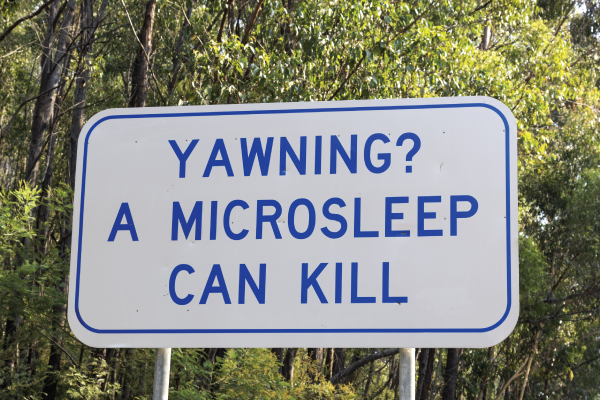Sufferers of sleep apnea (or apnoea) may be familiar with experiencing a poor night’s rest, but what they might not realise is the effect this is having on them during the day. Feeling tired and groggy isn’t the only consequence of tossing and turning; many people will also experience microsleeps, which can be dangerous if left unrecognised.
What are microsleeps?
Microsleeps occurs when a person is awake, or feels themselves to be awake, but really they have dozed off for somewhere between a second and two minutes. During this time, the brain cannot recognise the state of sleep, but equally won’t be alert to surroundings, making driving or operating machinery a serious hazard.
You can look out for episodes of microsleeps by identifying yourself staring blankly into the distance, closing your eyes for an extended period of time, or the snapping-up of your head as it begins to fall. It’s common for it to occur when carrying out repetitive actions or activities that are usually done on autopilot, as the brain is not fully engaged or challenged.
Everyone experiences microsleeps at some point; in fact, it occurs normally as part of the sleep cycle before you fully drift off. However, if it’s happening in the day and not just as a one-off after that all-nighter you pulled, then it’s time to take action.
The connection between sleep apnea and microsleeps
Microsleeps are more a symptom of sleep deprivation rather than sleep apnea directly, though many sufferers do experience it. Even if someone with sleep apnea appears to sleep through the whole night, it’s likely that the sleep is not of particularly good quality, leaving them prone to experiencing microsleeps. Frequently experiencing episodes could also be the symptom of other sleep disorders, so it’s always best to raise any concerns you might have with your doctor.
The solution
It’s difficult to present a solution to preventing microsleeps when the brain isn’t aware it’s happening. However, when driving, if you do notice yourself drifting to the side of the road or losing awareness, it’s important you stop and get some rest.
However, as the root cause of this happening is sleep apnea, treating the condition is the best course of action you can take. Fortunately, there are many ways you can do this, from trying out a CPAP mask to making lifestyle changes. Nodding off doesn’t have to be a daily occurrence forever.

